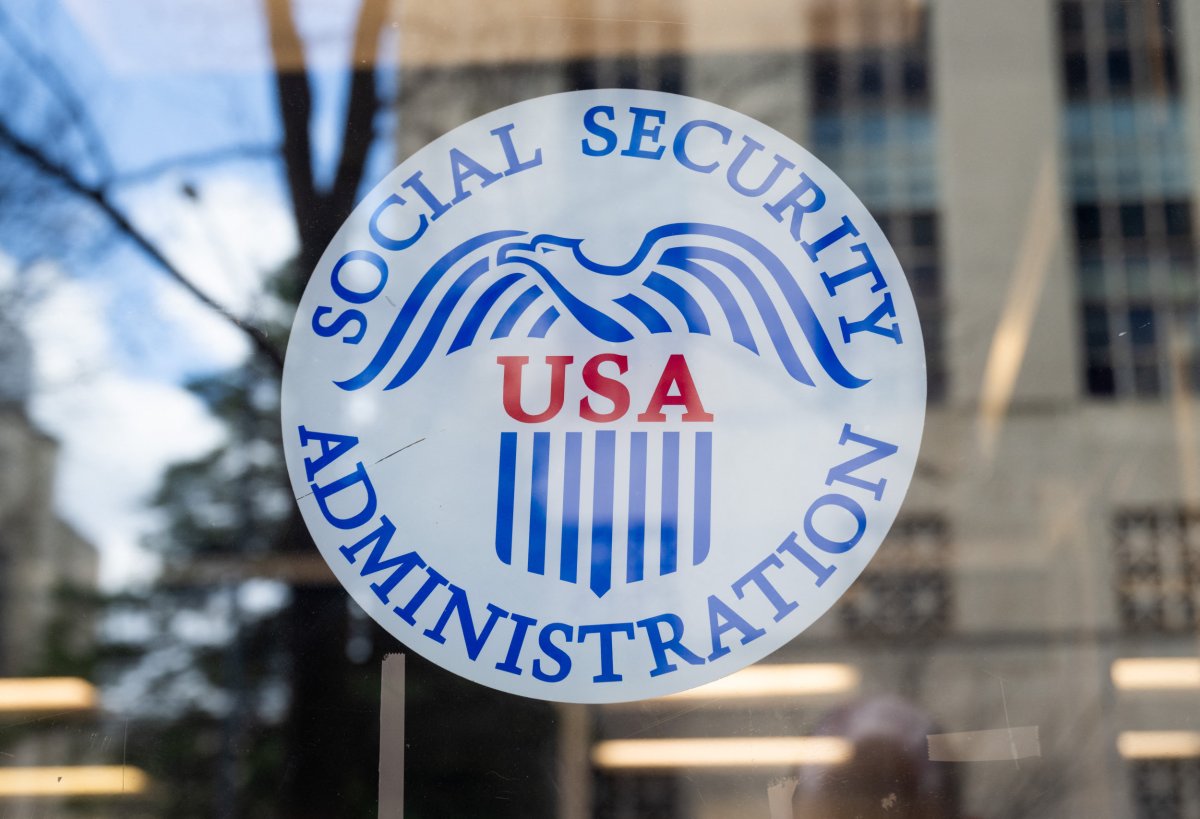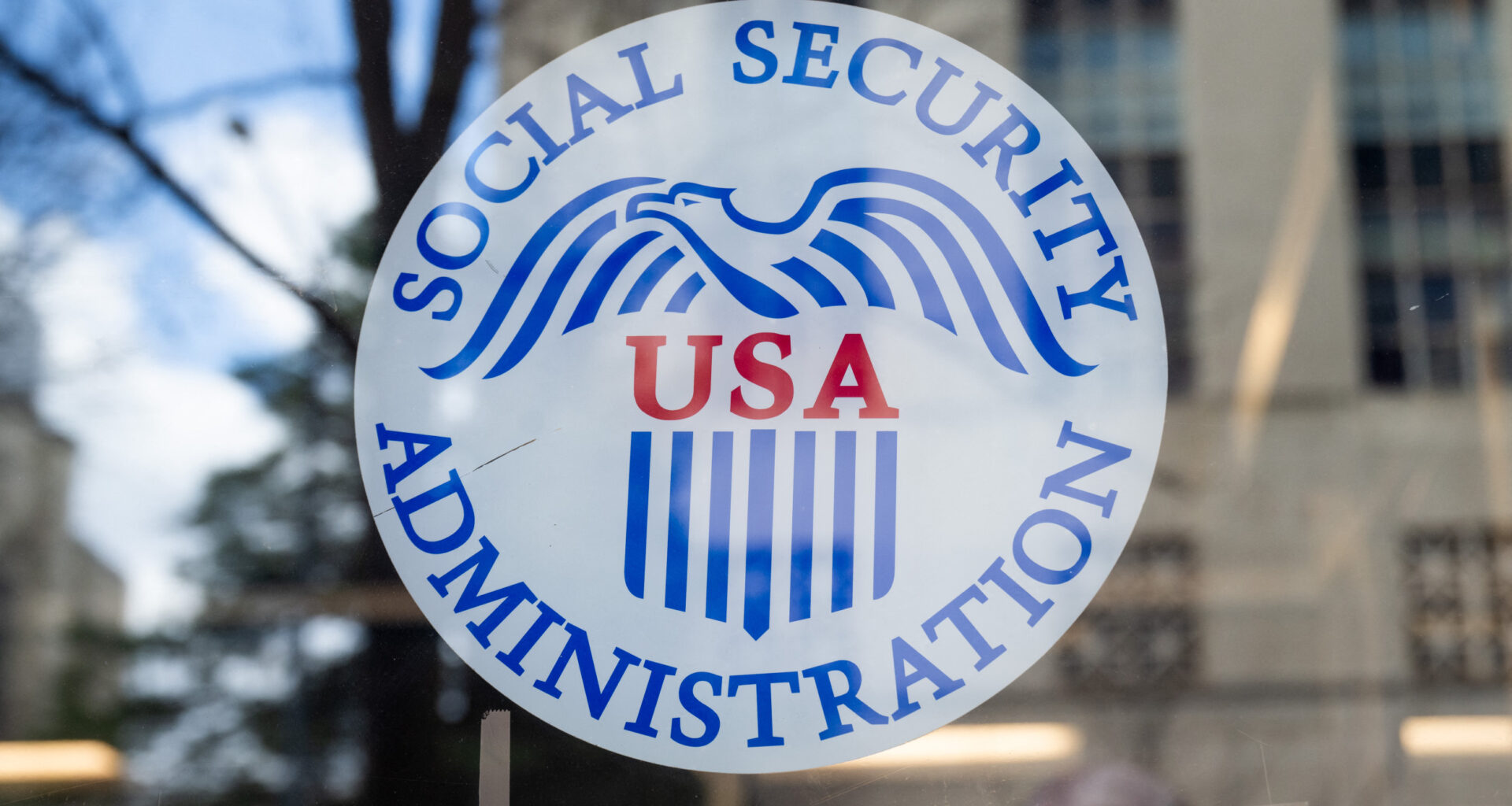Members of Congress are warning that Social Security could be privatized and have announced legislation intended to prevent it.
The new bill, Hands Off Our Social Security Act, would require congressional approval for major Social Security Administration (SSA) changes.
Why It Matters
The timing of the bill comes as the Social Security trustees warn that the program’s retirement trust fund could be depleted as soon as 2033, risking automatic benefit reductions unless Congress acts.
Lawmakers and advocates argue the bill seeks to protect more than 70 million beneficiaries who rely on Social Security for retirement and disability income amid simultaneous agency staffing reductions and modernization efforts that critics say could disrupt service.

A Social Security Administration office in Washington, D.C., on March 26, 2025.
A Social Security Administration office in Washington, D.C., on March 26, 2025.
SAUL LOEB/AFP via Getty Images
What To Know
Representative Melanie Stansbury, a New Mexico Democrat, has announced a legislative effort to block privatization of Social Security and to require congressional approval for significant staffing reductions or field office closures at the SSA.
Stansbury joined House Ways and Means Social Security Subcommittee Ranking Member John B. Larson, Assistant Democratic Leader Joe Neguse and Representative Julie Johnson of Texas to introduce the Hands Off Our Social Security Act, a bill that listed protections against privatization, staffing cuts without congressional approval and field office closures without impact reports.
“The Trump Administration is trying to dismantle Social Security from within so they can slash and privatize seniors’ hard-earned benefits,” Larson said in a statement.
“I am proud to take a stand with Rep. Stansbury and our colleagues today to tell them to take their hands off Social Security. Our bill will block the President and his ‘DOGE’ from moving forward with their plans to close field offices, undermine customer service at the Social Security Administration, and rummage through your personal records.”
The bill would protect benefits from unauthorized changes, block privatization of SSA services or administration, and enforce strict privacy protections for beneficiary data.
The law also prohibits SSA staffing cuts without congressional approval, prevents field office closures without an impact report and congressional consent, and ensures continued phone and in-person service options. Annual Government Accountability Office audits of staffing and operations would also be required.
“The bill’s smart because it tackles the under the radar stuff. Most people think Social Security reform means changing benefit formulas,” Michael Ryan, a finance expert and the founder of MichaelRyanMoney.com, told Newsweek. “Though the real damage often happens through operational cuts. When you slash 7k employees and threaten field office closures [technically not cutting benefits], but you’re making them nearly impossible to claim.”
Critics tied the legislative push to recent SSA personnel reductions and modernization efforts that they said had reduced customer service capacity and risked interruptions in claim processing.
“While Republicans claim improved service and wait times in the SSA, Democrats claim the opposite. As usual in Washington, the same data set yields wildly different conclusions,” Drew Powers, the founder of Illinois-based Powers Financial Group, told Newsweek.
“This bill is attempting to overturn some of the DOGE cuts, and restore the manpower necessary to provide real customer service to our senior citizens.”
The Social Security Board of Trustees’ annual update showed the retirement trust fund could be exhausted by 2033, leaving payroll tax income to cover only a portion of scheduled benefits unless Congress enacts changes.
Newsweek reached out to the SSA for comment via email.
What People Are Saying
Representative Melanie Stansbury, a New Mexico Democrat, in a statement: “Social Security is not a luxury—it’s a promise that Americans earn through hard work. This bill ensures that promise is kept, by stopping efforts to gut the system, privatize it, or make it harder for people to get help. People who have paid into the system deserve benefits they can count on, privacy that’s respected, and real people to help when they need support.”
Kevin Thompson, the CEO of 9i Capital Group and the host of the 9innings podcast, told Newsweek: “Stansbury and Larsen believe the administration is moving toward privatizing Social Security, which could make it harder to keep the promise of benefits intact. If the system is shifted toward private control, it may become less reliable for current and future beneficiaries.”
Alex Beene, a financial literacy instructor for the University of Tennessee at Martin, told Newsweek: “This bill looks to shut down the scaling back of the administration and limit private sector intervention in receiving benefits. Whether or not it actually stands a chance of passing remains to be seen, but it’s fair to say Congressional supporters of the President may have a hard time with backing some of the bill’s policies and procedures.”
What Happens Next
House Democrats said they would press the bill in committee and urged broader Congressional attention. However, it’s unlikely to get passed in the Republican-controlled Congress, Thompson said.
“The Democrats do not have the power nor the votes,” Thompson said. “They can put up a worthy challenge, but they may not have the votes to suppress Republican movement at this time. The only way they can pass it is to get some Republicans to vote for the bill, which is highly unlikely since most Republicans fear retribution and loss of their seats.”
Addressing the funding shortfall would likely require revenue increases, benefit formula changes or a combination of measures, experts say.
“Without a doubt, there is a looming Social Security crisis. When that crisis comes to a head nobody knows,” Powers said. “But with the current political polarization, I do not see this bill gaining widespread support across the aisle.”
